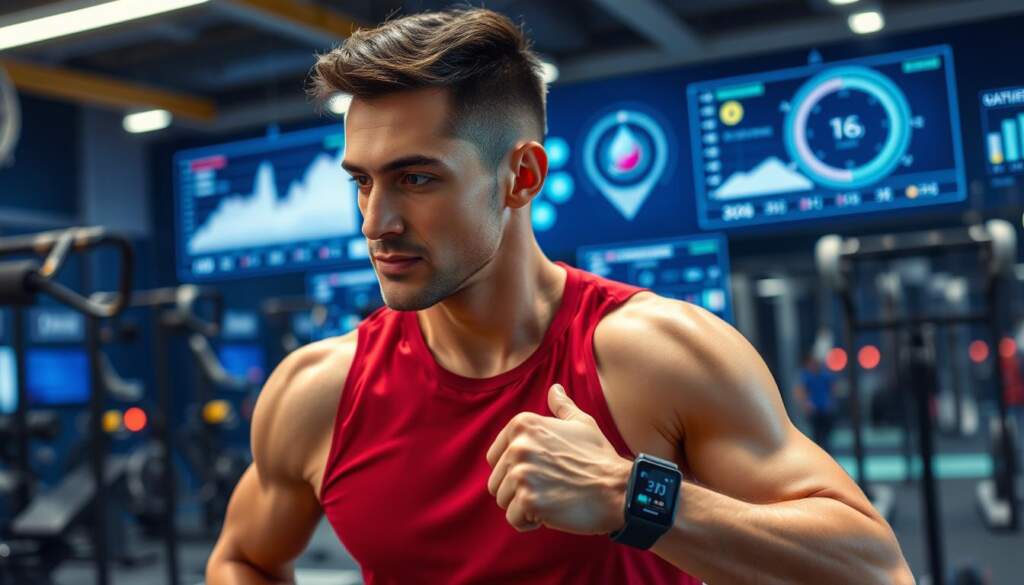The pursuit of excellence in athletic performance goes far beyond the gym and the practice field. It encompasses a rigorous blend of physical and mental training, nutrition, rest, and strategic competition preparation. Top athletes understand the intricacy of this preparation, often using psychological techniques to ensure they can achieve a state of flow. This state is characterized by a complete immersion in the moment, where focus is laser-sharp, and distractions dissolve, a concept popularized by Mihaly Csikszentmihalyi as key to peak sports psychology.
Visualization, a mental rehearsal technique, has been scientifically shown to activate the same neural pathways as physical activity, enhancing neuromuscular coordination and paving the way for successful performance outcomes akin to those experienced by prominent golfers in the zone1. Moreover, maintaining a delicate harmony between challenge and skill is essential for entering this coveted state of consciousness, where actions and awareness merge1.
But it isn’t just about being in the right headspace. Contact information for sports psychologists, like Aaron Grusonik, is readily available for athletes seeking to enhance their mental preparation, indicative of the high value placed on achieving comprehensive readiness1. And it’s not just for professionals; even youth sports are seeing a shift toward mental conditioning, with coaching methods that foster belief in abilities from an early age2.
Key Takeaways
- Fostering a psychological state known as “flow” is central to optimal athletic performance.
- Visualization practices benefit both professionals and youth, strengthening the mental aspect of training.
- There is an increasing trend in athletes, coaches, and psychologists collaborating for mental preparation.
- Balance in skill and challenge, along with comprehensive preparation, is crucial for athletes to achieve flow.
- The integration of mental health resources and emphasis on holistic training approaches support sustainable athlete development3.
- Rest and recovery are equally as important as active training in an athlete’s routine.
Understanding the Psychology Behind Peak Athletic Performance
The realm of competitive sports is as much a mental battlefield as it is a physical one. Athletes achieving optimal sports performance understand the profound impact of psychological preparedness and the ability to enter a ‘flow’ state.
The Concept of “Flow” and Its Impact on Athletes
In sports psychology, the concept of ‘flow’ is synonymous with being in the zone. This state is defined by an intense and focused absorption in the activity at hand, where every action, movement, and thought follows inevitably from the previous one, like playing jazz. The result is a seamless performance that can elevate an athlete’s effectiveness on the field. Achieving the flow state enhances neuromuscular coordination, bolsters sports focus, and fosters optimal sports performance. Data even shows a rising trend in the incorporation of sports psychology strategies in professional teams, reflecting its key role in athlete performance4.
Techniques Athletes Use to Achieve a Mental State of Flow
To enter this coveted ‘flow’, athletes engage in various mental strategies. These include setting clear, attainable goals as illuminated by studies highlighting their effectiveness in improving sports performance4. Effective communication techniques, a firm staple in a coach’s skillset, can also facilitate this state by ensuring athletes have the support and clarity needed to focus solely on their performance5. Furthermore, implementing regular psychological skills training such as visualization and deep breathing exercises is essential. These strategies fortify an athlete’s mental resilience and enhance their ability to maintain sports focus in high-pressure environments4.
The ascent of sports psychology is evident through increased media attention and its integration within professional sports teams, suggesting a crucial component of modern athletic preparation and mental health management6. By understanding and leveraging the psychological elements, athletes can better navigate the pressures of competition to achieve not only peak performance but also a healthier mental state.
Customizing the Training Regimen to the Athlete’s Individual Needs
To optimize athletic progression and foster peak performance, an individualized training approach is essential. This method not only respects the unique physiological and psychological aspects of each athlete but also responds dynamically to their evolving training load requirements.
Assessing Physical and Mental Readiness
Successfully customizing a training regimen begins with a thorough assessment of an athlete’s current physical condition and mental readiness. This holistic view ensures that the training load promotes sport-specific capacity without risking injury.
Utilizing wearable technology can provide real-time data on an athlete’s performance and recovery states, allowing adjustments to be made that are finely tuned to the individual’s needs7. Furthermore, wearable technology aids in early detection of potential overtraining or fatigue, tailoring the program to foster sustainable athletic progression7.


Addressing Individual Training Tolerances and Progressions
Each athlete possesses a unique capacity for workload, and understanding this is paramount for customizing training that truly reflects individual tolerances. A measured increment in training intensity accommodates not just the physical adaptations but also the psychological readiness of the athlete, ultimately leading to optimal performance enhancement.
Integrating guidance from credible experts and adapting evidence-based methodologies ensure that each phase of training is impactful. Strategies such as graduated exposure to higher loads and incorporating rest can prevent injuries while enhancing overall sport-specific capacity7. Jessica Dufour notes that balancing recovery techniques like adequate sleep, stretching, and cryotherapy can effectively complement the physical training by maintaining essential mobility and reducing recovery times8.
- Meticulously tracking training responses through modern wearable technology helps in precisely adjusting the training loads.
- Strategic planning of training sessions tailored to the individual athlete ensures the development of sport-specific skills while preventing burnout.
Employing a personalized approach in athletic training not only elevates performance but also extensively boosts an athlete’s confidence and capability to handle competitive pressures, paving the way for impressive and consistent athletic progression.
Integrating Technology and Data Analytics in Training
The landscape of athletic training is undeniably transforming through the integration of sports data analytics and modern technological advancements. As athletes strive for higher performance levels, the use of data-driven approaches has become critical in fine-tuning their training regimes.


Modern Wearable Technology and Its Role in Enhancing Training
Today’s athletes leverage wearable tech benefits to monitor everything from heart rate to oxygen levels in real time. Devices like WHOOP and smartwatches not only ensure precise physical fitness tracking but also aid in customizing training programs that reflect the unique needs of each athlete.
For example, detailed biometric data enables coaches to adjust workout intensity, preventing overtraining and reducing injury risks. Enhanced recovery strategies, facilitated by data from wearable tech, have proven crucial in maintaining athlete performance at optimum levels throughout the season9. Furthermore, technologies such as motion analysis software have revolutionized how coaches detect and correct technique flaws, significantly lowering the likelihood of injuries10.
Data-Driven Approaches for Monitoring Training Load
Monitoring an athlete’s training load through sports data analytics is critical for training optimization. Advanced analytics provide insights into an athlete’s endurance and readiness, which supports effective decision-making regarding training loads and competition strategies910.
This meticulous approach not only enhances physical preparation but also contributes to mental readiness, wherein athletes develop greater resilience and confidence. By integrating tools like cloud-based collaboration platforms, athletes and coaches can align their efforts seamlessly, ensuring that detailed performance metrics translate into actionable training insights10.
In conclusion, the symbiotic relationship between cutting-edge wearable technology and comprehensive sports data analytics has established a new era in sports training. These methods not only refine athlete performance but also propel them toward unprecedented levels of success in their sporting careers.
Mental Preparation Strategies for Competitive Athletes
To rise to the heights of athletic prowess, the mind must be honed with as much precision as the body. Mental exercise serves as a powerful adjunct to physical training, ensuring that athletes approach competition with a fortified psychological framework capable of withering the pressures of high-stakes performance. Manifesting success on the playing field begins in the intricate realms of the mind, where visualization practices and sports mindfulness transmute into marked performance enhancement11.
Visualization Techniques for Improving Performance
The silent rehearsal of visualization assists competitors in constructing a mental blueprint of success. Through the consistent practice of guided imagery, athletes not only enrich their confidence12, but also refine their focus, integrating the physical finesse with the distilled sharpness of their mental faculties12. This commitment to mental preparation spawns an increase in consistency within their performance, as they envision and execute with clear, composed intention12. Peer into the minds of champions, and one would undoubtedly find a vibrant tapestry of visualization at play, where each thread of thought meticulously weaves into the fabric of victory11.
Mindset and Mindfulness Exercises to Foster Concentration
Rooted deep in the philosophy of sports psychology is the principle of concentration, a critical facet illuminated by the teachings of mindfulness. The deliberate application of concentration techniques helps to alleviate the tendrils of fear and anxiety that often seek to cloud judgment12. Adopting a mindset that leverages the symmetry between rigorous training and trust in oneself equips athletes with the mental armor to face and reframe the innate pressures of competition11. Formalizing a routine that encapsulates both mindset exercises and dedication to give 100% effort conjures a mental fortress from which an athlete can operate at their utmost capacity11, fostering a rhythm that resonates with the heartbeat of their aspirations.
FAQ
What key factors contribute to the enhancement of athletic performance?
How does mental training impact competition preparation?
What techniques do athletes use to achieve a mental state of flow?
Why is an individualized training approach important for athletes?
How does modern wearable technology assist in athletic training?
How important is mental preparation in comparison to physical training for athletes?
Can wearable technology predict an athlete’s performance in upcoming competitions?
How do athletes assess their readiness for competition?
Are there specific mental exercises for different sports?
What role does recovery play in an athlete’s competition preparation?
Source Links
- Competition Preparation – https://msubobcats.com/sports/2021/2/10/competition-preparation.aspx
- Competitive Edge – https://magazine.hms.harvard.edu/articles/competitive-edge
- 5 Ways to Ensure Your Athletes are Competing Well – https://truesport.org/clean-sport/ensure-athletes-compete-well/
- How Do Sports Psychologists Help Athletes’ Performance? – https://www.amu.apus.edu/area-of-study/health-sciences/resources/how-do-sports-psychologists-help-athletes/
- A Coach’s Responsibility: Learning How to Prepare Athletes for Peak Performance – https://thesportjournal.org/article/a-coachs-responsibility-learning-how-to-prepare-athletes-for-peak-performance/
- Sport psychology, peak performance and athletes’ mental health, with Jamie Shapiro, PhD – https://www.apa.org/news/podcasts/speaking-of-psychology/sport-mental-health
- Personalized, Evidence-Informed Training Plans and Exercise Prescriptions for Performance, Fitness and Health – https://www.ncbi.nlm.nih.gov/pmc/articles/PMC8363526/
- Optimize your physical preparation before a competition – https://spa.accor.com/en/preparation-physique
- Data Analytics: A Game Changer for Athlete Performance, Recovery and a Prolonged Athletic Career – https://moneysmartathlete.com/athletes-utilizing-data-analytics/data-analytics-a-game-changer-for-athlete-performance-recovery-and-a-prolonged-athletic-career/
- Technology for Athletic Performance | Perch.fit – https://perch.fit/blog/technology-for-athletic-performance
- Tips for game day mental preparation | Parkview Health – https://www.parkview.com/blog/tips-for-game-day-mental-preparation
- Mental Preparation for Athletes – https://www.successstartswithin.com/sports-psychology-articles/mental-preparation-for-sports/mental-preparation-for-athletes/



